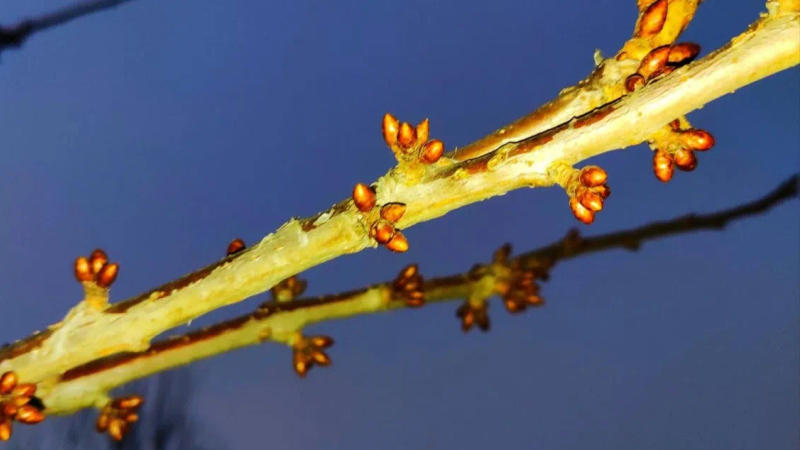Published 18:19 IST, January 15th 2024
Winter's Surprise Bloom: Unusual Warmth Results Into Almond Trees To Blossom Early
The almond trees, with a shorter cold requirement, are now blooming prematurely due to the warmer temperatures.

Jammu & Kashmir: Kashmir is experiencing an atypical winter this year, defying its usual cold reputation.
Recent reports from the local meteorological department indicate that temperatures are higher than the norm. While some may welcome relief from the biting chill, the unusual warmth is causing a biological anomaly in the region's flora, particularly affecting almond trees.
Farmers in south Kashmir have revealed that certain almond trees are blooming prematurely, a consequence of elevated temperatures associated with climate change. The early blossoming, occurring nearly two months ahead of schedule, is raising concerns among horticultural farmers in the Valley.
Typically, flowering trees require a specific duration of cold weather to initiate the blooming process. The almond trees, with a shorter cold requirement, are now blooming prematurely due to the warmer temperatures. Farmers are alarmed by this phenomenon, fearing potential repercussions for the agricultural sector.
The premature blossoming is causing worries about the possibility of early blight in fruit trees, which could impact overall production. "The importance of proactive measures to mitigate potential losses cannot be overstated. While similar occurrences have been observed in the past, the current trend, if sustained, may have more severe consequences for fruit production,” said a local farmer Aijaz Dar.
Independent meteorologist Faizan Arif points out the deviation from typical weather patterns. Traditionally, January sees snowfall in the region, but this year, the absence of snow during winter months and higher day temperatures in January have contributed to the premature blossoming of almond trees.
"Unusual events are unfolding as several other trees like cherry are also blossoming, experiencing temperatures well above the normal range, specifically 10 degrees Celsius this season. This climatic anomaly is creating a scenario reminiscent of mid-February or March but is occurring in January. The temperature has surged, reaching levels that are typically observed in the latter part of winter. Even wild trees are displaying signs of blooming, adding to the rare occurrence," he said.
"Over the past 40 days, day temperatures have consistently remained above normal. In the last 10 days alone, the temperature has been consistently 8-10 degrees Celsius above the usual range. This prolonged dry spell, if it persists, could lead to more significant damage to trees," Faizan further informed.
He adds that if the current dry spell continues, it will exacerbate the potential harm to trees. Moreover, there is no expectation of snowfall in higher ranges until January 24th.
Pertinently, Srinagar, summer capital of Jammu and Kashmir, experienced its warmest January day in 14 years, recording a temperature of 15.0 degrees Celsius. This surge, 8.6 degrees Celsius above the average, has raised concerns among meteorologists and residents alike about the implications of changing climate patterns in J&K.
"This unexpected rise in temperature surpasses the previous record set on January 21, 2018, by a significant margin," said Faizan Arif.
Meteorological data reveals that the current reading of 15.0 degrees Celsius makes it the 6th highest maximum temperature recorded in Srinagar since 1892, when January readings were first documented. The all-time highest temperature remained at 17.2 degrees Celsius on January 23, 1902, adding weight to the significance of this recent warm spell.
Updated 18:19 IST, January 15th 2024




